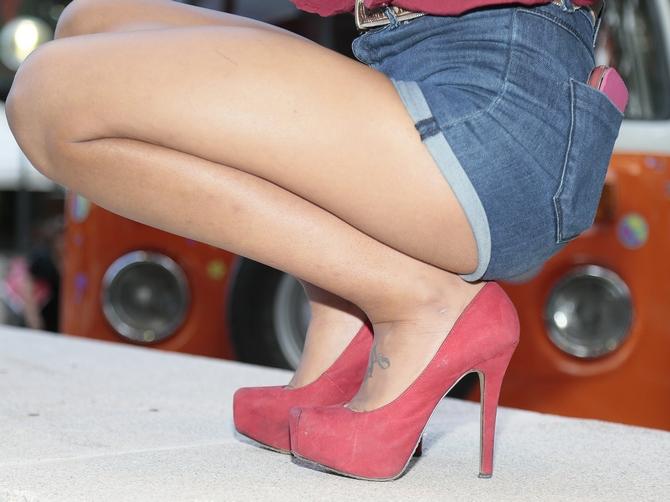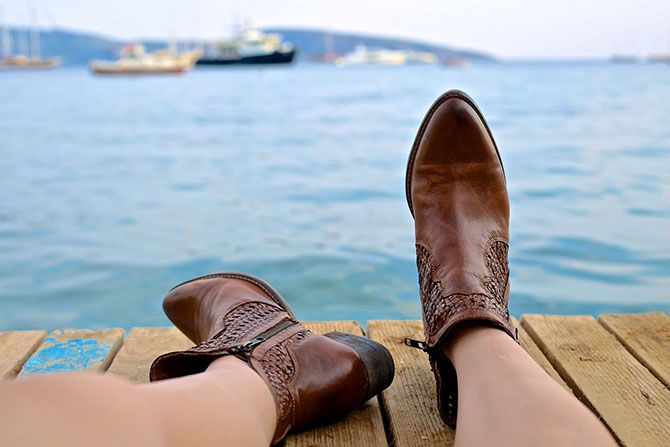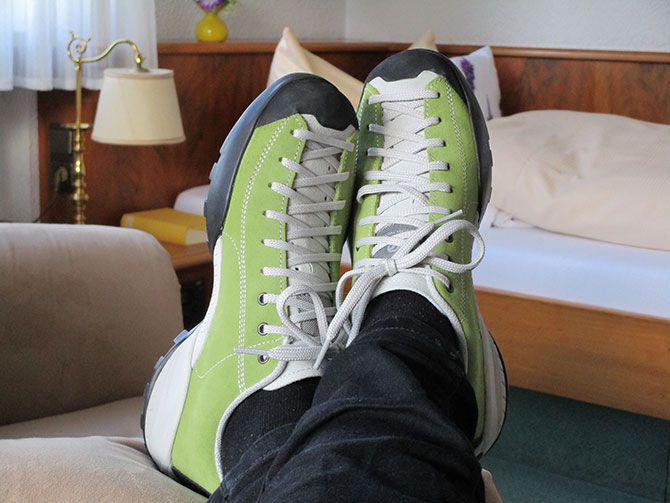 | « Back to article | Print this article |
Choosing the right footwear can help prevent many health problems, says Dr Siddharth M Shah.
Choose a shoe with a squared or rounded toe-box.
Some people knowingly or otherwise buy and wear incorrect footwear; understanding its effects on the body and choosing the right pair can help prevent many problems.
High heels

High heels put excessive load on the ball of the foot, resulting in pain or even callosities (excessive hardening of skin).
Heels also increase the risk of ankle sprain.
Prolonged use of high heels can cause shortening of calf muscled and acute pain in the feet.
They also put increased stress on the knees, hips and spine.
Your regular wear shoes should not have a heel over two inches tall.
Footwear and knee osteoarthritis

If you suffer from knee pain or arthritis, avoid wearing stiff or rigid shoes and high heels.
Research shows that flexible footwear with low heel (0.5 inch) reduces load on the knees.
Footwear and diabetes

Longstanding diabetes can lead to nerve damage which causes numbness in the feet.
As a result, one may not feel minor cuts or blisters, which can rapidly progress into serious infection.
Regular foot inspection for redness blisters or cuts and use of specialised soft footwear can help prevent serious complications amongst diabetics.
Choosing the right footwear
Fit

A lot of people don't know that your foot size can change with time.
Have the length and width of your feet measured while buying new footwear.
It should be measured in the evening as the feet swell a little towards the end of the day.
There should be about half an inch space between your longest toe and tip of the shoe.
The widest part of your foot must fit within the widest part of the footwear.
There should be no crowding or pinching of the toes.

If the shoe is shorter than the foot, it can result in toe deformities.
Narrow footwear can cause corns or bunions.
If the shoe is too big, it may result in blisters and pain due to sliding.
Feel

You should feel comfortable in the footwear.
Walk around the store with the new pair to check for comfort.
The footwear should be well cushioned to reduce the impact when your feet strike the ground.
Remember, the shoe must conform to your foot and not the other way around.
Framework

Choose a shoe with a squared or rounded toe-box.
A pointed toe-box can result in corns, callosities, bunions, toe deformities and blisters.
The arch of the shoe should complement the arch of your foot.
The heel counter (back of the shoe) should be firm enough to resist squeezing-in so it can support the heel well.
The shoe must bend at the toe-box and not at the shank (arch area).
Time to change your footwear

If your footwear shows worn out tread patterns, asymmetrically wornout heel, which are obvious defects or signs of wear and tear, then it is time to change your footwear.
If your previously comfortable shoe is now causing pain or a change in your walking, it may be a sign of wear.
Finally, choose the right footwear for the intended activity.
Never compromise on comfort for style.
Remember, your feet are the foundation of your body.
Most importantly, please don't hesitate to consult a doctor for specific advice.
Dr Siddharth M Shah is a consultant orthopaedic and joint replacement surgeon at the S L Raheja Hospital, Mahim, Mumbai.

Kindly note that all images published only for representational purposes.